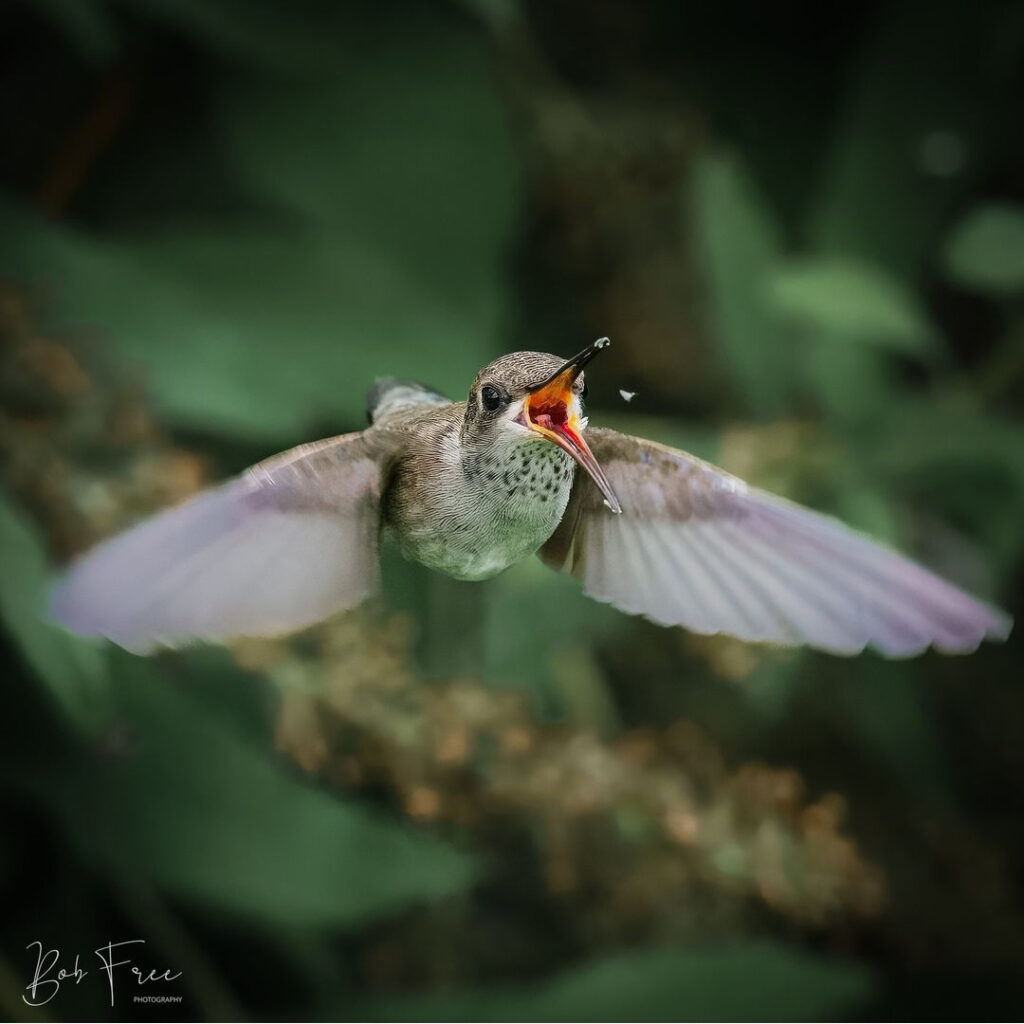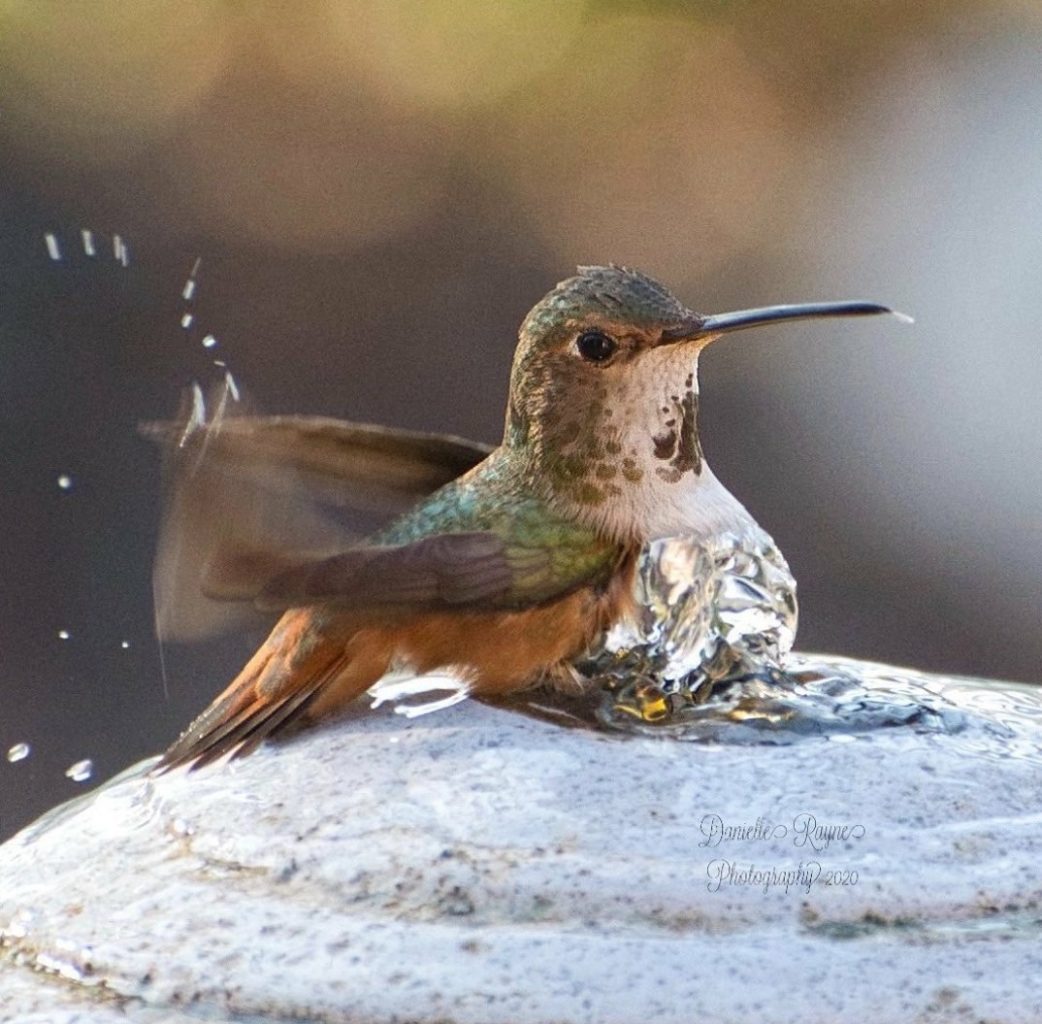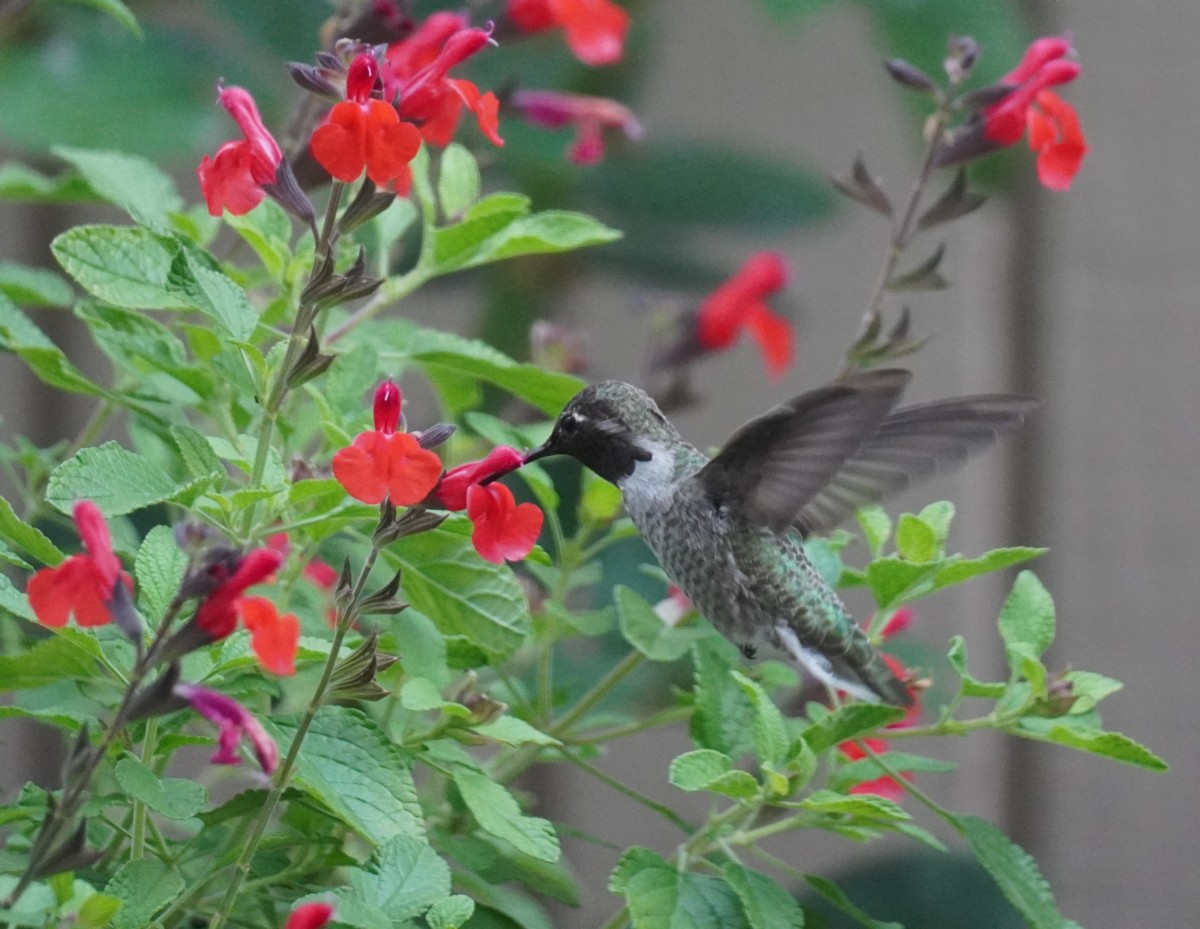This post contains affiliate links.
Discover the truth about hummingbirds’ diets as we explore if they feed on mosquitoes. Dive into the diverse eating habits of these tiny avian wonders. Learn more and enhance your birdwatching experience.
As fluttering jewels of the garden, hummingbirds are a source of fascination for avian enthusiasts, largely due to their iridescent plumage and incredible aerial agility. One question often flutters about as persistently as these tiny birds themselves: Do hummingbirds eat mosquitoes?
To both the curious observer and the avid ornithologist, the dietary preferences of hummingbirds offer a window into their delicate existence.
This article aims to unfold the layers of myth and fact surrounding the eating habits and diverse diets of these enchanting nectar-sipping creatures.
Do Hummingbirds Eat Mosquitoes? Understanding Their Diet
Considering the dietary preferences of hummingbirds, many enthusiasts inevitably ask: “Do hummingbirds eat mosquitoes?” The answer is multifaceted, as hummingbirds consume a variety of food sources crucial for their high-energy needs.
Predominantly, hummingbirds are known for their love of nectar—this sugary fluid provides the quick energy that these avian dynamos require for their strenuous flying antics. However, hummingbirds eat insects too, as they are an essential protein source that supports their muscle health and breeding capabilities.

Photo by: Bob Free
Despite myths to the contrary, studies show that hummingbirds eat mosquitoes, even though it is not a significant part of their diet. Their diet is more frequently filled with insects such as midgets, fruit flies, gnats, and small spiders, which provide substantial meals than mosquitoes.
Read my article: What Hummingbirds Eat: An In-Depth Guide
What is fascinating is that, proportionally, they eat roughly their weight in insects every day. While mosquitoes are occasionally part of their diet, hummingbirds consume a much wider array of insects and arthropods than just these bloodsuckers.
A hummingbird’s diet is meticulously tuned to their lifestyle needs. Every darting flight and hovering motion is powered by the rich caloric content of nectar and supplemented by the protein from their insectivorous habits.
When considering what hummingbirds eat, it is clear that while they might snatch the odd mosquito, they primarily seek out other food sources. Through a blend of nectar and insects, they maintain the enviable energetic existence necessary for their survival.
While it is true that hummingbirds eat mosquitoes, these tiny birds are not as reliant on mosquitoes as one might think, showcasing the diversity and adaptability of the hummingbird diet.
How Do Hummingbirds Catch Prey like Mosquitoes?
The fascinating world of hummingbirds reveals a spectrum of feeding behaviors beyond the dipping of beaks into floral nectar. They actively engage in the pursuit of protein-rich food, among which the elusive mosquito finds itself a target. How do hummingbirds catch prey like mosquitoes?
With their unrivaled mastery of aerial maneuvers, hummingbirds hover and dart with precision and with ease plucking flying insects from the air. Their acute vision allows them to spot even the smallest insects, while their rapid wingbeats, reaching upwards of 80 beats per second, afford them near-stationary flight to feed on tiny, airborne creatures.
Read my article: How Fast Do Hummingbirds Fly
As they patrol their territory, hummingbirds consume a variety of small insects, making mosquitoes, along with spiders and other invertebrates, an integral part of their eating habits.
Despite common misconceptions, mosquitoes are not the preferred prey for hummingbirds, though they will certainly consume them when available.
The primary diet of a hummingbird consists of nectar, which provides essential energy for their high metabolism, but to meet their nutritional needs, they must also ingest insects and spiders for protein, vitamins, and minerals.
Hummingbirds exhibit fascinating foraging behavior, often visiting favorite hunting spots where insects are abundant. The choice of prey among hummingbirds comprises a wide array, ensuring these swift avians feed efficiently throughout their range.
The question of whether hummingbirds eat mosquitoes is answered with an undeniable “yes”, though it is important to note that these insects are not the hummingbirds’ sole source of sustenance.
By consuming mosquitoes, hummingbirds play a role in controlling its population. Thus, it is a delight to acknowledge hummingbirds not only for their beauty and the pollination services they provide but also for their role as natural pest controllers, as they feed on mosquitoes and other small insects within their diverse diet.
The Role of Insects in the Diet of Hummingbirds
When contemplating the hummingbird diet, one must appreciate the expansive buffet that nature provides to these iridescent avian marvels. It is true, hummingbirds consume an astounding variety of insects and other invertebrates as a crucial component of their dietary needs.
Contrary to popular belief that these birds solely sip nectar, they eat a diversity of tiny fauna, with insects forming a substantial portion of this repertoire. It is said that they eat roughly their weight in insects every day, a statement reflecting the immense energy requirements these diminutive birds possess to sustain their rapid wingbeats and hyperactive lifestyles.
Specifically, hummingbirds eat a variety of insects that include midgets, fruit flies, gnats, and small spiders amongst many others. These protein-rich meals complement the high sugar diet of nectar, providing a balanced nutrition profile essential for their health and survival.
While hummingbirds do enjoy the occasional mosquito, these dipterans are not a staple in their diet due to their elusive nature and less predictable presence compared to other insect options that are readily available and easier to catch. Nevertheless, the diet of hummingbirds is not limited to insects.
Understanding the diet of hummingbirds underscores their role as natural pest controllers, as they consume insects that might otherwise become nuisances or even harm plants within ecosystems. Their dietary habits reflect an innate adaptability and opportunistic feeding behavior, allowing them to thrive across diverse habitats.
Ultimately, the hummingbird’s diet is a testament to the complexity and interdependence of natural food webs, with insects serving as crucial nodes in the sustenance of these captivating birds.
Do Hummingbirds Eat Other Insects Besides Mosquitoes?
When exploring the dietary patterns of these vibrant avians, one might wonder, do hummingbirds eat a variety of insects or focus on particular types? Hummingbirds eat more than just mosquitoes; their diet encompasses an extensive range of insects.
These agile birds feed on small flying insects that offer high nutritional value which is essential for their hyperactive metabolism. Besides mosquitoes, hummingbirds eat midgets, fruit flies, gnats, and small spiders. This varied diet provides them with the protein necessary to maintain their muscles for sustained flight.
How do hummingbirds catch these nimble insects? They use their remarkable flight abilities to hover and dart through the air, snatching insects with precision.
On numerous occasions during the summer I have witnessed hummingbirds swirling and dancing in the air close to the grass. Initially, I thought they had consumed something special due to their erratic behavior, however upon closer inspection I realized they are catching and eating midgets for protein as they are more prominent during the warm summer months.
Their rapid wingbeats create a near-invisible blur, allowing them to feed mid-flight. It is fascinating to watch a hummingbird in action—suspended in the air as they do what appears to be an aerial dance to capture their prey.
Integrating both nectar and insects into their diet, hummingbirds have evolved as dual feeders. The role of insects in the diet of hummingbirds can not be understated, as it provides essential nutrients that are not found in nectar.
Furthermore, insects supply the necessary fats and proteins that help in the growth and development of their young.
The next time you observe these astonishing creatures hovering around your garden, remember that while they may enjoy the nectar you have provided, they are also on the lookout for their next insect meal—demonstrating the true diversity of what hummingbirds eat.
Attracting Hummingbirds and Controlling Mosquitoes in the Garden
To create a garden habitat that is a magnet for hummingbirds while keeping the mosquito population at bay, you will need to consider their diverse needs. Hummingbirds are naturally drawn to areas rich in small insects, including mosquitoes, but they do not necessarily eat mosquitoes in large quantities.
The key to attract hummingbirds is to plant nectar-rich flowers and ensure a continuous bloom so they have a reason to visit and stay. Additionally, it is critical to control mosquitoes, as these pests can hamper the enjoyment of your outdoor space.
While it is true that hummingbirds do partake in eating small insects, they are more likely to consume other types, such as midgets, fruit flies, gnats, and small spiders than mosquitoes. However, some may wonder, “Do hummingbirds eat mosquitoes?”
Hummingbirds will eat mosquitoes on occasion, they do not rely on them as a primary food source. To control the mosquito population in your garden, introduce natural predators and consider environmentally safe repellents.
Does the prospect of fewer mosquitoes and more hummingbird visits sound appealing? Embrace strategies that both attract hummingbirds and control the pesky bloodsuckers.
When you are planning your garden,consider incorporating a water feature to attract hummingbirds. Make sure the water circulates since mosquitoes prefer stagnant water for breeding.

Read my article: Hummingbird Bath Essentials: Creating the Perfect Oasis
A thoughtful approach to your garden habitat will invite an abundance of hummingbirds without succumbing to an overpopulation of mosquitoes.
Plants That Attract Hummingbirds and Repel Mosquitoes
Cultivating a garden habitat that is both enticing for hummingbirds and hostile towards mosquitoes is an art.
To attract hummingbirds, consider the array of plants including but not limited to red tubular flowers brimming with nutritious nectar. It is the vibrant colors of red petals that beckon to them with the promise of sweetness, a crucial feed source sustaining their high-energy lifestyles.
Read my article: Increase Backyard Hummingbird Activity in 7 Days or Less

Autumn sage – Salvia greggii
When considering the hummingbird diet, there is intriguing curiosity around whether these little birds eat mosquitoes. Although not a primary food source, hummingbirds occasionally catch and consume mosquitoes as they do with other small insects, which provide necessary protein to their diet.
In the quest to draw hummingbirds integrate plants such as Bee balm and Agastache (type of Hyssop). To repel mosquitoes, gardeners plant Marigolds. This not only has the allure to attract hummingbirds but also possess properties that repel mosquitoes, harnessing nature’s own pest control.
Such garden plants become the foundation of garden habitats that are havens for hummingbirds, yet inhospitable to mosquitoes. Be assured, despite the presence of plants that repel mosquitoes, these bloodsuckers aren’t a significant threat to the enjoyment and observation of hummingbirds within your floral sanctuary.
Ultimately, creating a balanced ecosystem to observe the delicate flitter of hummingbird wings without the annoyance of mosquito bites is entirely attainable. Through informed plant choices, your garden will flourish as a magnet for hummingbirds while deterring the relentless mosquito.
Do Hummingbirds Help Control Mosquito Populations?
Many enthusiasts wonder, do hummingbirds eat mosquitoes, and if so, can they control mosquito populations? These vibrant, swift creatures have a diet versatile enough to include a variety of small flying insects.
While it is common to see hummingbirds fluttering from flower to flower, they are also adept hunters, capturing insects in mid-air with precision. The notion that hummingbirds eat mosquitoes is a compelling one, particularly for those seeking to diminish the mosquito population near their homes. But do mosquitoes constitute a significant portion of their diet?
Hummingbirds consume insects for protein and eat mosquitoes as part of their varied diet. However, mosquitoes do not make up the bulk of their insect consumption. Hummingbirds are likely to eat mosquitoes incidentally rather than actively hunting them.
As hummingbirds dart through the air, their rapid wing beats create wind currents that ensnare and consume unsuspecting mosquitoes and other small flying insects. It is not the primary method through which hummingbirds catch prey such as mosquitoes, but it does contribute to the eating habits of these fascinating birds.
Read my article: What Hummingbirds Eat: An In-Depth Guide
While we can not solely rely on hummingbirds to control mosquitoes, these birds contribute in their small way in managing the mosquito population through their regular feeding behaviors.
When considering the role of insects in the diet of hummingbirds, it is clear that they are opportunistic feeders, eating whatever insects are available, including mosquitoes when they encounter them.
Nonetheless, attracting hummingbirds to your garden offers some assistance in diminishing those pesky mosquitoes. Integrating plants that attract hummingbirds and repel mosquitoes is also an excellent strategy for gardeners wishing to enjoy these iridescent birds while mitigating the discomfort of mosquito bites.
FAQs
Q: Do hummingbirds eat mosquitoes?
A: Hummingbirds do eat mosquitoes, but these tiny insects are not a significant part of their diet. While hummingbirds consume various insects, mosquitoes are eaten more by chance rather than as a primary food source.
Q: What primarily comprises a hummingbird’s diet?
A: The primary component of a hummingbird’s diet is nectar, which provides the quick energy required for their high metabolism and strenuous flying activities. Additionally, they ingest insects and spiders for protein.
Q: How do hummingbirds catch insects like mosquitoes?
A: Hummingbirds employ their aerial agility to hover and dart through the air with precision, enabling them to pluck flying insects from the air, including mosquitoes. Their rapid wingbeats and acute vision allow them to capture these insects efficiently while they feed mid-flight.
Q: Are hummingbirds efficient at controlling mosquito populations?
A: Although hummingbirds do consume mosquitoes, they are not a significant force in controlling mosquito populations, as mosquitoes are not a major part of their diet. Hummingbirds will eat mosquitoes when they encounter them, but they are more opportunistic rather than deliberate mosquito hunters.
Q: Can the presence of hummingbirds in my garden help reduce mosquito problems?
A: While hummingbirds may consume some mosquitoes, their presence in your garden is unlikely to make a large impact on mosquito populations. However, planting a variety of flowers that attract hummingbirds and incorporating natural mosquito repellents creates an inviting environment for hummingbirds and less hospitable for mosquitoes.
Q: What other insects do hummingbirds eat besides mosquitoes?
A: In addition to occasionally feeding on mosquitoes, hummingbirds eat a wide array of insects, including midgets, fruit flies, gnats, and small spiders.This variety helps them acquire the necessary proteins and nutrients needed for their health and the growth of their young.
Check out my other posts on Hummingbird Questions
Happy Hummingbird Watching!
Backyard Visitors participates in affiliate programs which compensate us for referring traffic.

